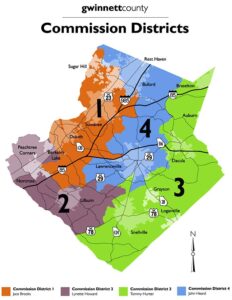As an educator, I am always behind the times when it comes to my kids’ education. I mean, I am in charge of 1800 of them, so when I get home, assisting with homework and, you know, talking to the little people about school, is a bit exhausting. I want to talk about other stuff, like being quizzed on football team names, or being trounced in a game of Uno by children in the single digit age range. What with dinner to be made, baths to be taken, and all that, it’s kind of hard to keep up with what’s shaking in education from a parent’s perspective.
Flash forward (backward?) to an old article I recently read about The Georgia Network for Educational and Therapeutic Supports ( GNETS), the alternative placement for little people who don’t make the cut in the traditional educational setting. These are children who, for whatever reason, are missing out on some sort of behavioral more that the rest of the world of six year olds understand. The majority of GNETS students are 3-10 years old. Three years old! Who can be afraid of a kid who just recently got out of diapers? The teachers. The principal. The school. The county. The state. Apparenlty, a squatty little kid who still has baby fat is a force not to be reckoned with.
So what does the school do? The school slaps an Emotionally and Behaviorally Disordered (EBD) label on him and paperworks the kid right on out of traditional school, shoving them into a setting that is frightening at best, and terrifying at worst. Many of these children, predominantly Black and predominantly Male, are warehoused into a building or the hall of a building where they are restrained, secluded, and academically neglected. Parents are pressured into believing that the school actually cares about the child and wants to help. The nice lady at the eligibility team meeting states that “The Team” only wants what is best for the child. So the school brings in a Behavioral Specialist, who makes more than the average teacher but does none of the leg work. The “specialist” gives the teachers ten days of “specific data” to collect and waltzes off to the next meeting.
The teachers at this time can follow the data collection with 20 other little people in the room, or can, you know, do their best, and if Johnny pisses them off, they can fabricate the information fudge a little here or there to make it look like Johnny truly is a menace to society ensure that Johnny gets the “help” he needs. After all, there are 20 other cherubic little ones in the class, and some of them can’t read, so they really need help. Why waste time on a six year old who is bound for prison anyway? And the Behavioral Specialist? S/he doesn’t check the fidelity of the data; doesn’t question the findings. GNETS’ primary criteria for eligibility? EBD.
Georgia, in all of its glory, is fighting vehemently to keep GNETS. Georgia is throwing down the States Rights card so that Georgia can warehouse its students who have behavioral difficulties. Georgia is going straight 1930s and throwing these children into the Millennial version of an institution. “Don’t know how to handle them? Put ‘em in GNETS! That’ll show those parents who don’t know how to raise them!”‘
So the parents, many of whom may not have the education to know what’s up, trust the school to do what is best for Johnny. Two weeks after the EBD label and an IEP, Johnny is in the Georgia Network for Educational and Therapeutic Supports (GNETS). Johnny is now, truly headed for prison because the school threw him away. The school and the school system tossed him aside because he is difficult; he’s too challenging; he’s too angry; they don’t know what to do with him.
The school took a little boy, who once thought school was the best place ever, and placed him in a setting where the teachers are beaten down, worn out, and overworked. They put him in a place where there is a 90% chance that he will never, ever, see a traditional classroom, participate in school sports, or be able to sit in circle time.
Here in Georgia, schools and school systems refuse to educate the teachers in the area of behavior. What with all the impetus to raise test scores, and raise graduation rates (another smoke and mirrors for another time), locks some of the brightest students into a hellhole and throws away the key. Besides, having too many conduct referrals affects CCRPI, now, doesn’t it? Can’t have that on our school record. Better to just get rid of the little buggers.
So what alternative do the parents have? Many are unable to afford private school. Some may not be able to home school due to financial restraints or because they are single parents. So Johnny has to stay in an educational vacuum until he either drops out or gets schooled in prison.
Back in the day, I was an educator who vociferously defended the rights of many. Now I’m a mom who needs for Georgia to assist the rights of a few who need attention. Georgia has made great strides in the area of including those who sturggle academically, yet it just can’t get its act together to help those who stuggle behaviorally. Like the little ones who can’t read, there are little ones who can’t sit in a seat for hours, or who may get upset when they don’t understand something, or who may pay too much attention to what the teacher is saying and become anxious because they internalize more than others. Or maybe, just maybe, the school gave up on them in kindergarten, and they know it. Why not act like a tool? No one cares any way.
It is imperative that the folks at the Dome look to these kids and help them just as much as the cherubic ones who may not do well academically. No child deserves to be thrown away. They’re children. They deserve more than a one way ticket to GNETS simply because they are behaviorally challenged.







 he challenge of brain drain has existed for years in areas around the nation. The South is no different, although perhaps more exaggerated and slower to respond. As I grew up in Social Circle, all I wanted to do was get the hell out of my small town and find a job, home, and surroundings that seemed to fit me more than from whence I came. Many college-age kids and younger are the same. This is not to say I do not deeply love Walton County (God’s country) and recognize the idyllic childhood I had there. I grew up recognizing I was a square peg in a round hole, and I felt like an escape would provide the upward mobility I sought while not interfering with/ ruffling the feathers of those within the cultural climate I was reared. The early recognition that I was a bit different forced me to reconcile that staying in my small town would mean a constant outsider feeling accompanied with a general uphill battle for any of my ideas and presence in certain circles. So like a number of youth across the nation, I left and come back for family visits, events of friends who stayed behind and not much else. I wait with baited breath for Walton County’s prosperity and commercial growth. I sing its praises as often as I am able and I encourage as many to move there as possible, yet the struggle to be accepted as I am (more progressive, assertive, and business oriented) will always halt any dreams of returning.
he challenge of brain drain has existed for years in areas around the nation. The South is no different, although perhaps more exaggerated and slower to respond. As I grew up in Social Circle, all I wanted to do was get the hell out of my small town and find a job, home, and surroundings that seemed to fit me more than from whence I came. Many college-age kids and younger are the same. This is not to say I do not deeply love Walton County (God’s country) and recognize the idyllic childhood I had there. I grew up recognizing I was a square peg in a round hole, and I felt like an escape would provide the upward mobility I sought while not interfering with/ ruffling the feathers of those within the cultural climate I was reared. The early recognition that I was a bit different forced me to reconcile that staying in my small town would mean a constant outsider feeling accompanied with a general uphill battle for any of my ideas and presence in certain circles. So like a number of youth across the nation, I left and come back for family visits, events of friends who stayed behind and not much else. I wait with baited breath for Walton County’s prosperity and commercial growth. I sing its praises as often as I am able and I encourage as many to move there as possible, yet the struggle to be accepted as I am (more progressive, assertive, and business oriented) will always halt any dreams of returning.
